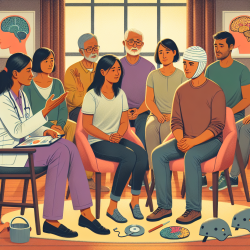Embracing Diversity: A Path to Inclusive Healthcare Education
In the ever-evolving landscape of healthcare, the importance of inclusivity cannot be overstated. The recent study titled The Inclusion of LGBTQ+ Health across the Lifespan in Pre-Registration Nursing Programmes: Qualitative Findings from a Mixed-Methods Study sheds light on the critical need to integrate LGBTQ+ health into nursing education. This blog explores the key findings of this study and offers actionable insights for practitioners and educators to enhance their skills and curriculum.
Understanding the Research
The study employed a mixed-methods approach, combining quantitative and qualitative data to assess the inclusion of LGBTQ+ health content in nursing and midwifery pre-registration programs across the UK and Ireland. With 29 survey responses and 12 follow-up interviews, the research identified three primary themes:
- LGBTQ+ Health across the Lifespan: Addressing the unique health needs of LGBTQ+ individuals at different life stages.
- Taking the Initiative for LGBTQ+ Health Inclusion: Encouraging proactive curriculum development to integrate LGBTQ+ health topics.
- Identifying and Overcoming Challenges: Recognizing barriers and developing strategies to address them.
Key Findings and Implications
The study highlights the efforts of nursing academics to integrate LGBTQ+ health into curricula, despite challenges such as lack of confidence and resources. It emphasizes the need for:
- Comprehensive Curriculum Development: Educators should ensure that LGBTQ+ health topics are woven throughout the curriculum, rather than being isolated to specific modules.
- Inclusive Learning Environments: Creating safe spaces for discussion and reflection encourages students to engage with diverse perspectives and experiences.
- Collaboration with LGBTQ+ Communities: Partnering with community members and organizations can enrich educational content and provide real-world insights.
Practical Steps for Practitioners and Educators
To implement these findings, practitioners and educators can take the following steps:
- Engage in Continuous Learning: Stay informed about the latest research and best practices in LGBTQ+ health to enhance your teaching and clinical practice.
- Foster an Inclusive Culture: Encourage open dialogue and respect for diverse identities within educational and clinical settings.
- Utilize Available Resources: Leverage existing materials and collaborate with experts to develop comprehensive educational content.
Conclusion
Integrating LGBTQ+ health into nursing education is not just an academic exercise; it's a crucial step towards creating a more inclusive and equitable healthcare system. By embracing diversity and fostering an inclusive learning environment, educators and practitioners can play a pivotal role in improving health outcomes for LGBTQ+ individuals.
To read the original research paper, please follow this link: The Inclusion of LGBTQ+ Health across the Lifespan in Pre-Registration Nursing Programmes: Qualitative Findings from a Mixed-Methods Study.










